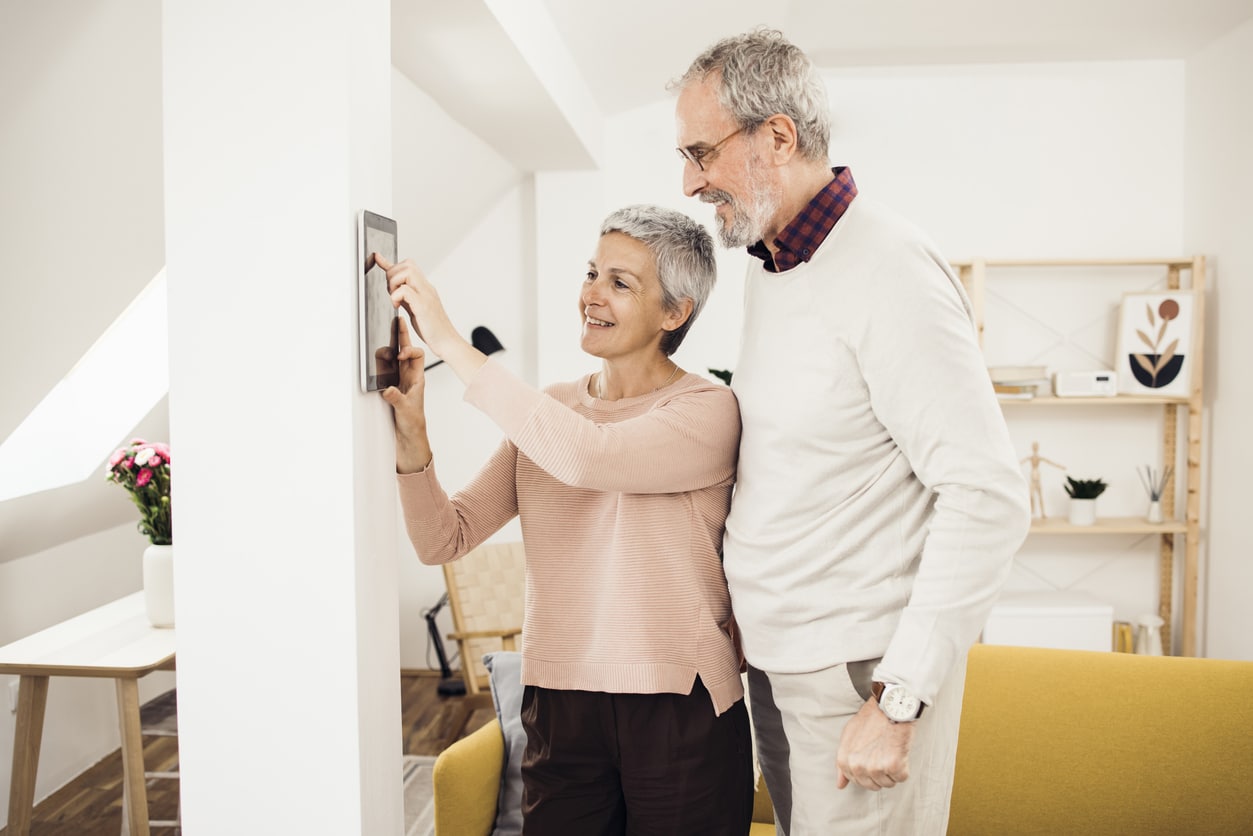Hearing loss is a common condition, affecting around 15% of American adults. If you or a loved one is experiencing hearing loss, there are additional safety precautions that may be helpful to ensure your home remains a safe place.
Safety Risks Associated with Hearing Loss

People with hearing loss may face unique challenges when it comes to home safety. For instance, if an intruder tries to enter your home through a window or door, you may not hear the noise of breaking glass or forced entry. Standard security alarms rely on sound to alert you, which can be less effective if you have trouble hearing.
The same concern applies to essential safety devices like smoke detectors, fire alarms and carbon monoxide detectors. For those with hearing loss, carbon monoxide leaks are particularly dangerous, as this gas is both odorless and invisible, lacking any clear signs like smoke that would otherwise alert you to the danger.
Home Safety Alerts for Those with Hearing Loss
Fortunately, modern technology offers alternative alarm systems for those who are hard of hearing, making it easier to stay safe. You can now find fire alarms, smoke detectors and carbon monoxide detectors that feature extra-loud sound alerts or flashing strobe lights to capture your attention during emergencies.
Another helpful option is a bed-shaking alarm. These devices include a vibrating pad that goes under your mattress or pillow, shaking you awake in case of an emergency. Some models even have a digital display that flashes “FIRE” in bold letters to further ensure you’re aware of the situation.
Upgrading Existing Alarms to Improve Safety
If replacing all your existing smoke detectors isn’t ideal, consider adding an alerting device that works with your current alarms. These devices can pick up the sound of your smoke detector and create an even louder, lower-pitched sound, which may be easier for those with hearing difficulties to hear. This enhancement can be a convenient way to make your home safer without a full system overhaul.
Depending on the model, you may want to consider professional installation to ensure everything is set up correctly. However, many options are available at hardware stores, and some are designed for easy DIY installation.
Using Hearing Aids for Increased Safety
Hearing aids not only help with daily conversations but also improve your ability to hear important sounds and alarms. While they should be removed before sleeping or showering, wearing hearing aids throughout your waking hours can provide extra peace of mind when it comes to safety.
If you already use hearing aids, wearing them consistently can maximize their benefits. If you have untreated hearing loss, it might be time to consider a hearing test. Contact Augusta – Aiken ENT & Allergy to schedule an appointment and explore options for improved hearing and home safety.